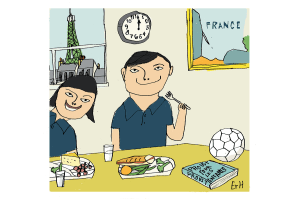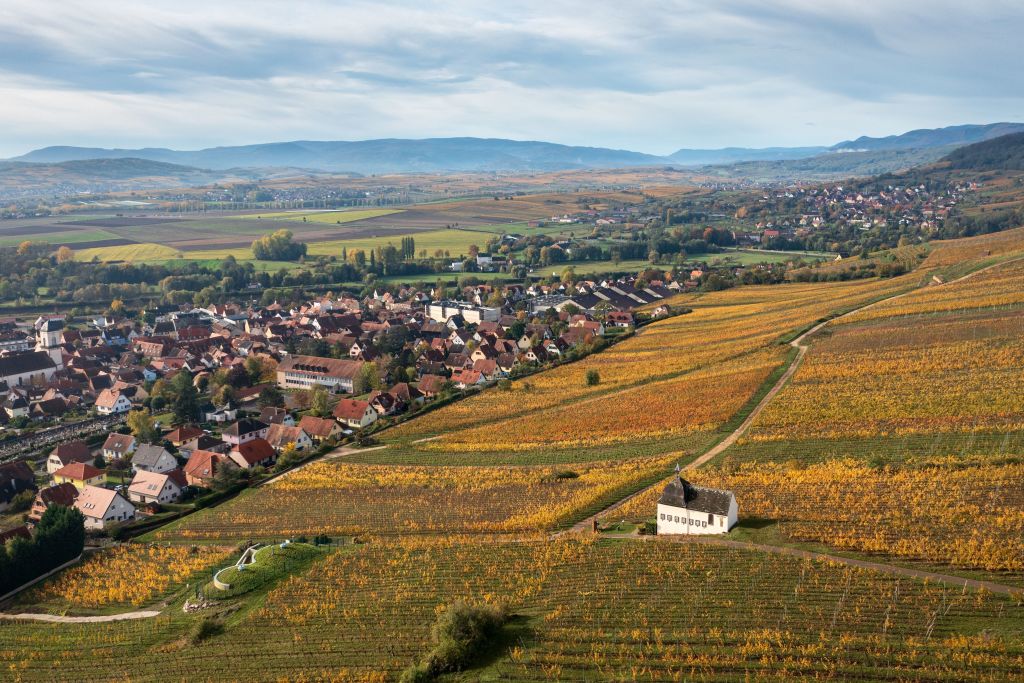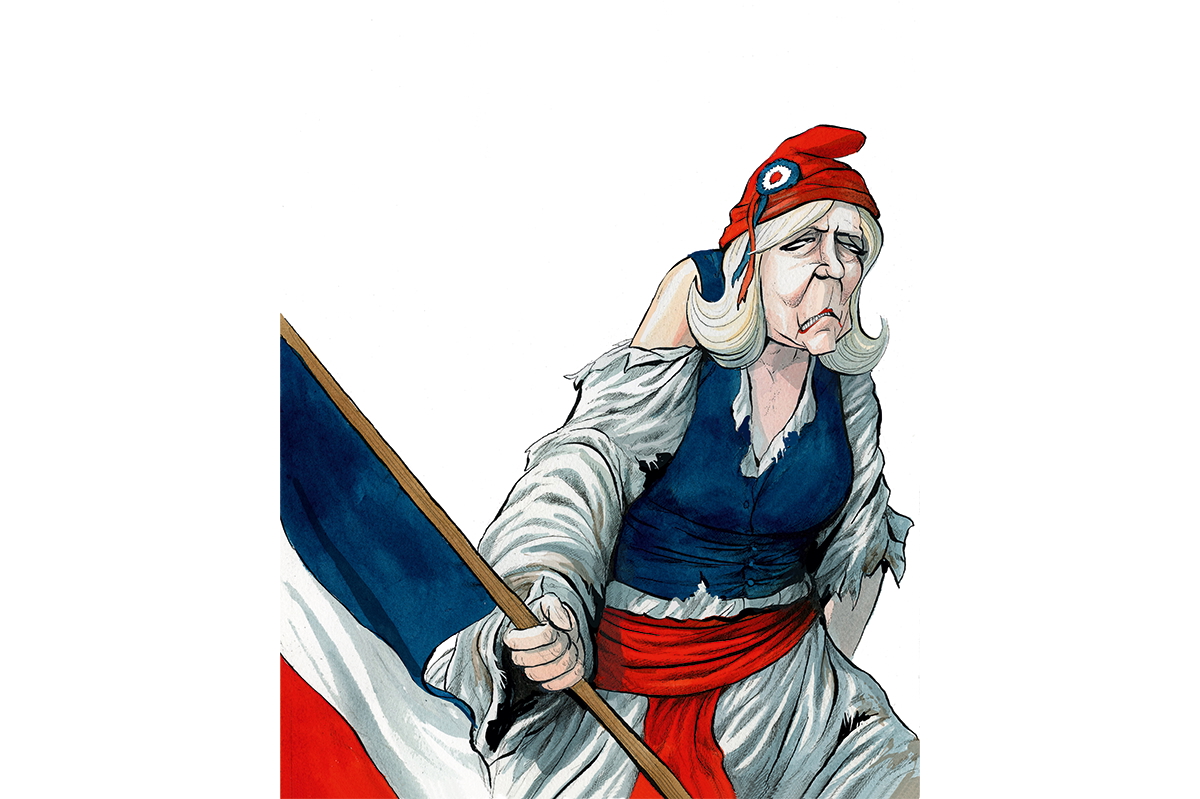On the mantel shelf of the cave there’s an invitation to my middle daughter’s wedding in August. This happy event is causing anxiety on several counts, not least finding something to wear. I hate shopping. Algorithms send me dozens of hideous armor-plated mother-of-the-bride outfits daily but I want to know what Kate Moss would wear if she were shorter, ten years older, half a stone heavier, had a budget of $570 (including accessories) and didn’t look like Kate Moss.
One of the things I like about this part of France is the lack of voracious consumerism
Last month I finished a portrait painting. The sitter was pleased and came over with the second installment, $1,000 in cash, which I put in my handbag. After he and his wife left, I argued with myself — lost — got in the car and headed for the department store Printemps in Toulon, an hour’s drive away.
Standing beside the road outside the village was a woman hitching a lift holding a sign, “Brignoles,” a town half an hour away in the direction I was going.
In this part of rural Provence there are few buses. Kids often hitchhike home from school or friends’ houses. If I can, I pick them up, especially the girls, reasoning that if they were my daughters I’d want me to pick them up.
A few years ago on the way home I stopped for a young couple. The girl was very young, fifteen at the most. She giggled a lot, smelt of BO and weed, and her face was dirty. The boy was older and embarrassed. The following day I recognized her on a missing person Facebook post and called in to tell the gendarme I’d seen her. Eight months later I saw her in the post office; she looked happy, clean and heavily pregnant.
I stopped the car, moved my handbag and waited for the woman to get in. She was taking an age to walk the few feet so I turned and saw she was older than I’d thought, in her fifties, and was limping badly. I leaned over and opened the door. She’d fallen off her bike and broken a toe, she told me. It was an effort for her to get herself, her small rucksack and large handbag into the car.
My French is still poor but I understood some of what the woman told me. She worked as a cook in a religious community. She earned $1,700 a month (more than I do in winter) and loved her job but her husband only cared about money and wanted her to find something more lucrative.
Every day he was pressuring her to give up the monastery work. He worked all the time and wanted the family to live in a fancy house and have the best car. I sympathized. One of the things I like about this part of France is the lack of voracious consumerism. People buy cars and keep them for twenty-five years. A few years ago on the Saturday before Christmas I was the only customer in the supermarket.
It was late morning; I could smell stale alcohol. The woman rummaged in her rucksack for something and among the tangle of objects she pulled out was a new, expensive-looking white lacy bra. Seeing me notice the bra, she told me she’d packed some things and was leaving. Her children were grown up and she was going to another religious community on the coast for a week to think things through. Her husband didn’t care about her, only about money. She told me more but I couldn’t understand what she said. Big tears fell down her puffy face.
Ten years ago, almost to the day, I’d done the same and left home — but with shabbier underwear
It dawned on me that ten years ago almost to the day I’d done the same for different reasons but with shabbier underwear. My children were grown up and I left. I knew the tearful, quaking woman on the seat beside me well. I laid my hand on her shoulder and agreed that thinking things through away from home before making a decision was a good idea.
Did I believe in God, she wanted to know. She told me I was an angel for helping her. God had sent me. “Are you happy now?” she asked. We were almost at the roundabout where she’d asked to be dropped off.
Without the knowledge, language or time to address these concepts properly I pulled over and told her I wasn’t certain about the existence of God, that happiness was at best fleeting and that I’d settle for being content most of the time — or at least not miserable. I thought about the Walt Whitman poem “The Untold Want” I’d discovered recently, which had been on my mind since: “The untold want by life and land ne’er granted,/ Now voyager sail thou forth to seek and find.”
I wished her bon courage. She put her hand in her rucksack, freed some red wooden rosary beads from the bra, placed them over the gearstick, thanked me, and went on her way.
This article was originally published in The Spectator’s UK magazine. Subscribe to the World edition here.


























Leave a Reply